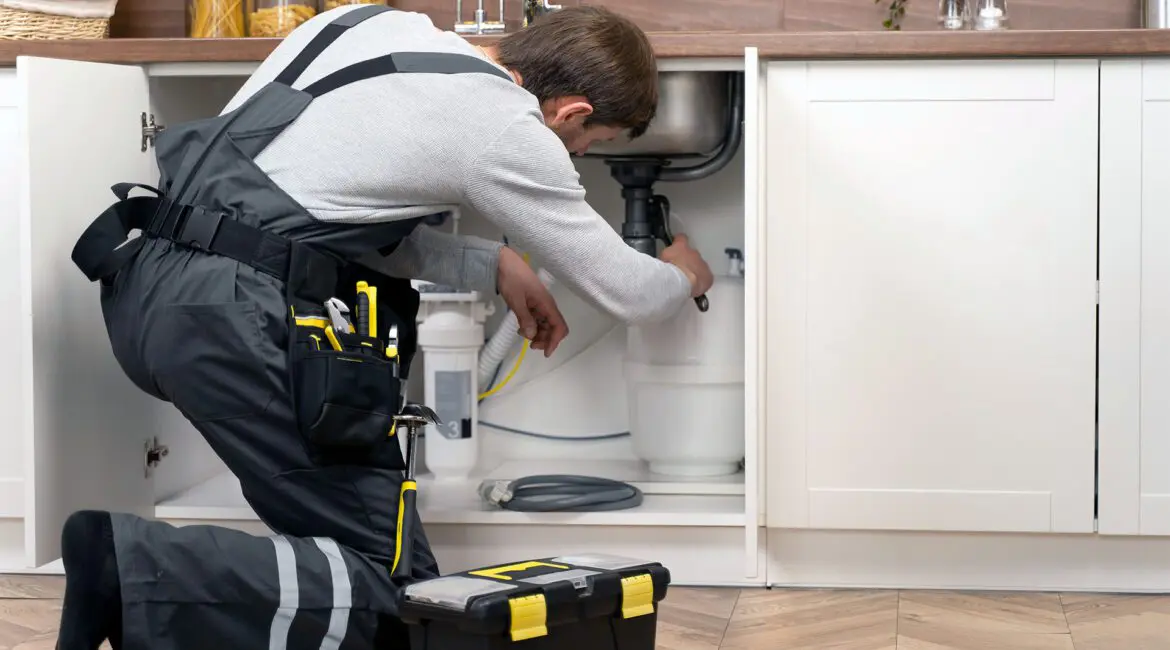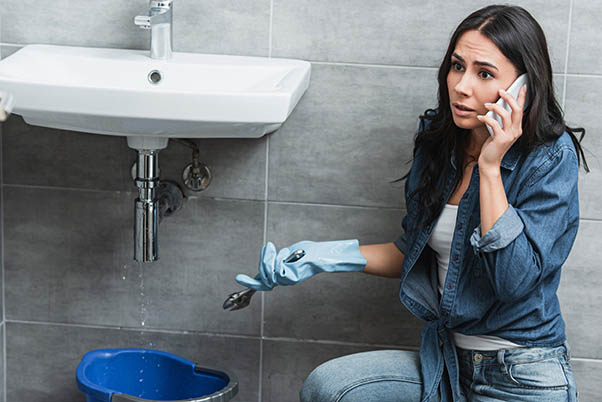Urgent Plumbing Advice: Steps to Take Until Support Arrives
Urgent Plumbing Advice: Steps to Take Until Support Arrives
Blog Article
We've uncovered this article relating to What to Do During a Plumbing Emergency directly below on the internet and concluded it made good sense to relate it with you on this page.

Pipes emergency situations can strike at any moment, triggering anxiety and prospective damage to your home. Whether it's a burst pipe, a clogged drain, or a leaky tap, recognizing just how to take care of the scenario up until an expert plumbing shows up can conserve you from additional complications. This write-up supplies important emergency pipes suggestions to help you minimize damages and restore control throughout a plumbing crisis.
Switch off the Water System
The initial step in any kind of pipes emergency is to turn off the water supply. For localized issues, such as a leaking faucet or bathroom, turn off the shutoff near the fixture. In the case of a significant leak or ruptured pipe, situate your home's primary water shut-off valve and transform it off instantly. Recognizing the location of these shutoffs beforehand can conserve important time throughout an emergency.
Shut Off Your Hot Water Heater
In certain emergency situations, such as a burst pipe, it's important to turn off your water heater. This stops overheating or damages to the system when water stops moving. Shut off the power supply to the hot water heater (electric or gas) and allow it cool off to avoid possible hazards.
Momentarily Stop a Ruptured Pipe
A ruptured pipe can bring about considerable water damages in minutes. To minimize the problem:
Call an expert plumbing professional right away to attend to the problem completely.
Have an Emergency Situation Plumbing Set
Prepare a basic pipes emergency situation kit to manage small problems properly. Your kit needs to include:
Having these devices accessible can make a substantial distinction in your capacity to manage emergency situations.
Unclog Drains Pipes Safely.
A blocked drain can be a discouraging and unpleasant concern. Here's how to tackle it:.
If these techniques do not function, prevent utilizing extreme force, as it may intensify the obstruction.
Handle Overflowing Toilets.
An overflowing toilet can cause immediate chaos. Here's what you should do:.
Address Tiny Leakages with Short-lived Solutions.
Little leaks can rapidly become significant problems if left uncontrolled. Utilize these short-term fixes until expert help gets here:.
While these fixes aren't irreversible, they can assist minimize water loss and damage.
Handle Frozen Piping Thoroughly.
In colder environments, frozen pipelines are a common emergency situation. If you think an icy pipe:.
Know When to Call a Specialist.
While quick fixes can assist temporarily, specific plumbing problems require instant professional interest. Call a plumbing if:.
Immediately getting in touch with a specialist guarantees the concern is fixed appropriately and avoids more complications.
Stop Further Damage.
Taking fast action to lessen damages can save you time and money in the future. Here's how:.
Conclusion.
Plumbing emergencies can be frustrating, yet with the right knowledge and tools, you can handle the scenario effectively until help arrives. By shutting off the water, attending to little leakages, and making use of short-lived fixes, you can reduce damage and maintain your home safe. Bear in mind, these pointers are short-lived solutions; always consult a certified plumbing technician to deal with the source of the trouble. Prep work and quick thinking are your finest allies in any type of pipes emergency situation.
8 Helpful Tips for Managing Plumbing Emergencies at Home
If your plumbing system hasn’t failed once, wait for it because almost everyone has a story to tell. Sometimes, it could be simple emergencies such as a leaking pipe, a blocked cistern, or even a big burst pipe. In situations like this, you need to have some handy tips to save you some money and from possible damages.
Take care of minor issues early.
Sometimes, you could have avoided an emergency by taking proactive measures while it was still early. Some major plumbing emergencies can be a result of an ignored minor issue. We recommend that you have items like plumbing tapes and other related items. A plumbing tape can allow you to manage minor leaks before the plumber arrives.
Cut off the water supply.
This tip is essential in almost any type of leakage problem. For problems like minor leakages in the toilet or kitchen, turn off the supply that takes water to the affected pipes. If the leakage is a major pipe, you must shut off the supply valve to the entire building. This will help you avoid flooding your home and neighbors if you share a flat.
Know your plumbing system
Folks typically move into a new apartment without understanding the water supply around the building. This can prove disastrous if a water emergency arises and the plumber is far away. The previous tip will prove useless if you don’t practice this one. More importantly, know where your water shut-off valve is located – you’ll need that knowledge to prevent potential home floods.
Have some common handy tools
There are lots of plumbing emergencies that you can handle without hiring a plumber. That’s why you must keep some tools available always. Some tools that you can use to fix simple plumbing emergencies easily include plumbing tapes, screwdrivers, thread seal tapes, plungers, pliers, tape measures, and rubber gloves.
Insulate your pipes from cold
You’ll save yourself from many plumbing expenses if you protect your water pipes from the cold. This is because of the harmful effects that cold weather can have on your pipes. During winter, your pipes can burst from being overly expected to freezing temperatures. So, make sure insulators are there to keep the pipes working correctly.
Avoid practices that will clog your toilet.
Many people indulge in practices that can damage the plumbing system of the entire building. One of these is when they use their toilet to dispose-off garbage. They flush all kinds of things, such as paper towels, bandages, hairs, female sanitary products, etc., down the toilet. This will block your toilet in the long run, incurring unnecessary expenditures. Dump such waste in the trash instead.
Check your dials regularly.
Sometimes, there could be leakages in your home without noticing them in time. So, constantly monitor your water meter dial. If the dial is reading when there is nobody using water, this is an indicator that there is leaking. Check for leaks immediately. Call a plumber as soon as possible if you can’t find any.
https://www.constructionplacements.com/8-helpful-tips-for-managing-plumbing-emergencies-at-home/

We had been made aware of that editorial about from a buddy on another web blog. So long as you liked our blog entry plz be sure to share it. I praise you for being here. Please pay a visit to our site back soon.
Start Now Report this page